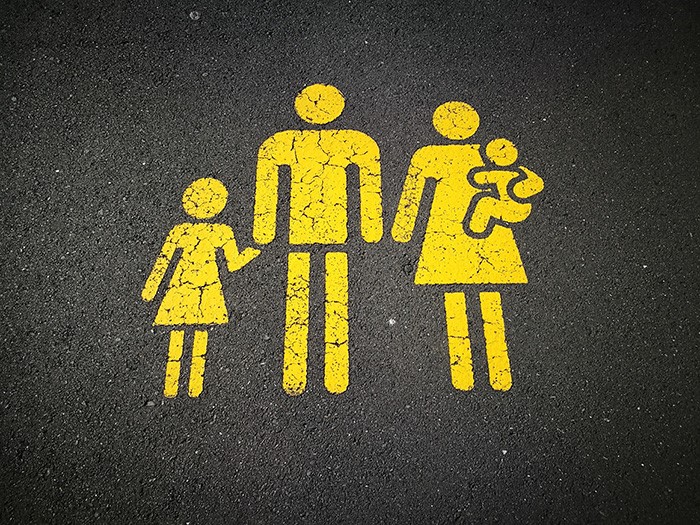December 27, 2018
Previous articles have described the (favourable) impact of the reform of Belgian inheritance and matrimonial law. It was notably underlined that the life assurance contract, considered as an essential tool for wealth planning, had been particularly impacted, for the better, by these reforms to the Civil Code in Belgium.
With jurisdiction over inheritance tax and certain registration duties since 1 January 2015, the Flemish Region (Vlaamse BelastingDienst or “VLABEL”) is responsible for determining, auditing and collecting or refunding inheritance taxes and registration duties. VLABEL’s jurisdiction is based on the establishment, in the Flemish Region, of the tax residence of inhabitants of the Kingdom or, regardless of the tax residence of the concerned taxpayer, of a real estate property.

- Reminder: a long-standing debate
The life assurance contract is governed by the Belgian Insurance Act of 4 April 2014.[1] As with any contract, there are several parties to be identified. For life assurance, we will identify the policyholder, the life insured and ultimately the beneficiary of the policy. The life assurance policyholder is the person who makes the decision to take out a contract by paying one or more premiums to a specific insurer. Further on, the insurer, against payment of the premium(s), undertakes to pay a lump sum to the person designated as beneficiary of the policy, when the risk related to the relevant insurance policy (life or death) is realised, that risk being borne by the person designated under the policy as the “life insured”. The life assurance contract can thus be described as the payment by the policyholder of a premium in exchange for the payment by the insurer of a lump sum to the beneficiary of the policy at the time of its settlement. This means that the policyholder will no longer own the sums invested in the contract, but will have a right of claim against the insurer.
The policyholder thus acquires personal entitlements to the contract and exercises them alone if he/she is the sole owner of the policy. Alternatively, the policyholder will exercise these entitlements jointly in the case of joint ownership with the other policyholder(s) who have taken out the life assurance contract with them. Since the policyholder’s rights are not relinquished on their death, it is necessary to determine the fate of these rights in the event of the prior death of a policyholder which did not terminate the policy. An accretion clause between the policyholders may thus provide the desired solution, as may an assignment of rights to a specific assignee.
The question had been raised in a previous post concerning the premium(s) paid using common funds and therefore qualifying, via the life assurance mechanism, as an undivided claim for joint policyholders or as an individual claim in the event of an individual policy having been taken out.[2] How is the specific nature of the policyholder’s rights to the contract and thus of the underlying investment to be recognised? The long-standing debate on this subject has been ended by the introduction, via the reform of Belgian matrimonial law, of the distinction between “titular ownership and ownership of financial flows”. There is a tax impact that should be addressed: when one of the joint-policyholder spouses dies, what happens with the inheritance tax on the cash surrender value of the life assurance contract thus transferred to the surviving spouse?
Here, we are dealing, through the mechanism of the accretion clause and the new distinction between “titular ownership and ownership of financial flows”, with a private asset transferred from the first-deceased spouse to the surviving spouse (i.e. the cash surrender value of the policy that is linked to the personal rights of the first-deceased spouse transferred to the surviving spouse). Again, under the principles set out in the law of 22 July 2018, the surviving spouse is then required to pay compensation to the community of assets, in respect of the value of the rights on the policy that have been affected by the accretion clause.[3]
Indeed, because it concerns a life assurance policy taken out by both spouses and which does not end with the death of the first spouse, and whose cash surrender value is transferred to the surviving spouse, the new law provides that the cash surrender value – benefiting the surviving spouse – will be a “private asset” of the surviving spouse. To the extent that the premiums have been paid from the common assets, the law specifies that this spouse will be liable for “compensation” paid into the common assets. Upon the death of the first spouse, compensation would be due to the community of assets for one-half of the cash surrender value of the policy. Logically speaking, this compensation should be subject to inheritance tax. However, a fiscal exemption from the inheritance tax on such compensation may be invoked if the couple concerned has one or more common children living at the beginning of the estate settlement process.[4]

- VLABEL: a (surprising) position
While the tax position of the Wallonia and Brussels-Capital regions supports this exemption from inheritance tax on the basis of Article 16 of the Belgian Inheritance Tax Code, until recently the Flemish position was uncertain, and tended to favour taxation, under Article 2.7.1.0.0.6 VCF, on a partial or total surrender of the policy by the surviving spouse.[5]
Several recent advance rulings by VLABEL provide some guidance on this subject. In a first decision dated 8 October 2018[6], VLABEL has confirmed that the compensation will not be taken into account in the application of inheritance tax when there are common children involved.[7] However, a major problem remains to be solved: in particular, there is the situation where the conditions for exempting the compensation would not be met, leading to double taxation (taxation of the compensation at the time of the first death and at the time of any partial or total surrender made by the surviving spouse, or at the time of the second death).
Recognising this problem, VLABEL issued a new decision on 15 October 2018[8], introducing an unexpected retroactive legal fiction. Indeed, VLABEL deems it appropriate, at the time of the first death, to consider the entirety of the premiums as having been paid using funds from the surviving spouse’s own assets and not from the assets common to both spouses. As a result, any total or partial policy surrender following the first death will not result in the application of Article 2.7.1.1.0.6 VCF, thus avoiding double taxation in respect of inheritance taxes.
This decision then raises the following question: if, at the time of the first spouse’s death, the premiums are retroactively considered to have been paid out of the surviving spouse’s own assets, what justifies the payment of compensation into the common assets for one-half the cash value of the life insurance policy in question? Is the initial question of taking into account the compensation (or not) due to the community of assets moot?
VLABEL, no stranger to unexpected decisions, will no doubt provide us with an answer on this subject.
In any case, we will be watching this matter closely…
Our experts are at your disposal for any questions you may have.
Author:
![]() Nicolas MILOS – Senior Wealth Planner
Nicolas MILOS – Senior Wealth Planner
[1] Belgian Insurance Act, Moniteur Belge of 30/04/2014.
[2] Refer to the blog post entitled, «Belgian reform of matrimonial and inheritance law: Impact on life assurance policies”.
[3] Article 13 of the Act of 22 July 2018 amending the Civil Code and various other provisions relating to matrimonial property regimes and amending the Act of 31 July 2017 modifying the Civil Code as regards succession and gifts and amending various other provisions on this subject-matter, Moniteur Belge of 27/07/2018.
[4] Pursuant to Article 16 of the Belgian Inheritance Tax Code and Article 2.7.3.2.2.7. VCF.
[5] Following the decree amendment of 23 December 2016, applicable for deaths occurring after 31 December 2016. Thus, pursuant position no. 15020 of 2 February 2015, there is no longer any question of taxing on-half of the cash surrender value of the life assurance policy on the death of the first spouse.
[6] VLABEL, standpunt nr. 18067 dd. 09.10.2018, http://belastingen.vlaanderen.be.
[7] Pursuant to Article 2.7.3.3.2.7. VCF, which is based on Article 16 of the Inheritance Tax Code.
[8] VLABEL, standpunt n° 18073 dd. 15.10.2018, http://belastingen.vlaanderen.be.
